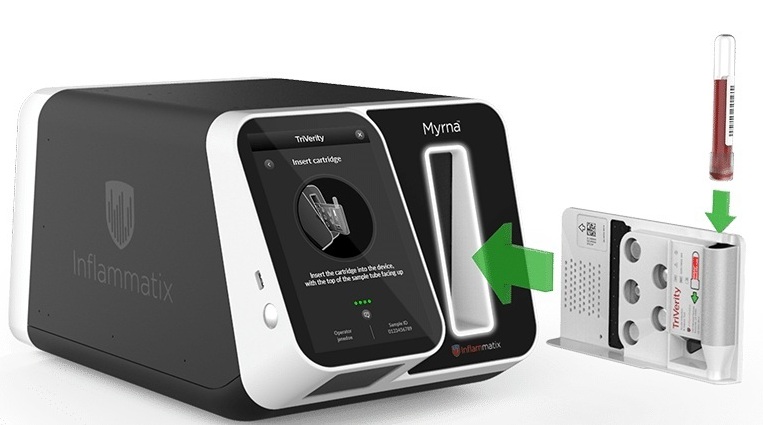Blood-Based Immune Cell Signatures Could Guide Treatment Decisions for Critically Ill Patients
Posted on 06 Oct 2025
When a patient enters the emergency department in critical condition, clinicians must rapidly decide whether the patient has an infection, whether it is bacterial or viral, and whether immediate treatment or hospitalization is required. Even when an infection is diagnosed, the appropriate treatment plan isn’t always clear: some sepsis patients recover with steroids while others worsen, and bacterial versus viral causes demand very different care. Now, blood-based gene-activity signatures that reveal a patient’s immune state could answer those questions quickly and accurately and guide treatment choices.
Researchers at Stanford Medicine (Stanford, CA, USA) have developed a set of blood tests and a scoring framework that translate immune-cell gene signatures into clinically actionable information. The new framework, called the Human Immune Dysregulation Evaluation Framework (HI-DEF), identifies “good” versus “bad” gene signatures and classifies patients into myeloid dysregulation, lymphoid dysregulation, systemwide dysregulation, or balanced response to inform targeted therapy choices.

The group built on an FDA-cleared diagnostic test (TriVerity) that measures activity of 29 genes and produces scores for the likelihood of bacterial infection, viral infection, and short-term severe illness, and they proposed a complementary scoring system to quantify immune dysregulation. The existing TriVerity diagnostic was validated in 1,222 patients enrolled from 22 emergency departments across the United States and Europe and outperformed several clinical standards for diagnosing infection and predicting severity.
For the HI-DEF study, the researchers analyzed more than 7,000 blood samples from 37 cohorts in 13 countries and showed that higher dysregulation scores were linked to worse outcomes across sepsis, burn, trauma and acute respiratory distress cases. The two scientific papers, appearing in Nature Medicine, demonstrate their diagnostic performance and the potential to guide treatment decisions.
The scoring system suggests concrete treatment pathways: patients with myeloid dysregulation may benefit from myeloid-targeting drugs, those with lymphoid dysregulation from lymphoid-focused therapies, and mixed dysregulation from combination approaches; steroids appeared beneficial in cohorts with high lymphoid dysregulation but harmful when immune responses were balanced.
The researchers plan to pair HI-DEF with the TriVerity diagnostic to create a single rapid platform that identifies infection type, severity, and recommended therapy in about 30 minutes. In addition to ICU use, the team envisions broader surveillance and even routine checks of immune dysregulation in outpatient settings, though prospective clinical trials are required to define specific treatment protocols.
“This work, combined with the fact that we have an FDA-cleared clinical test, is an indicator that we are likely at the beginning of the era of precision medicine in critical care,” said Purvesh Khatri, PhD, who led the research and co-authored the papers. “We finally have all the required tools to match the right people with the right treatment at the right time.”
Related Links:
Stanford Medicine
Inflammatix













